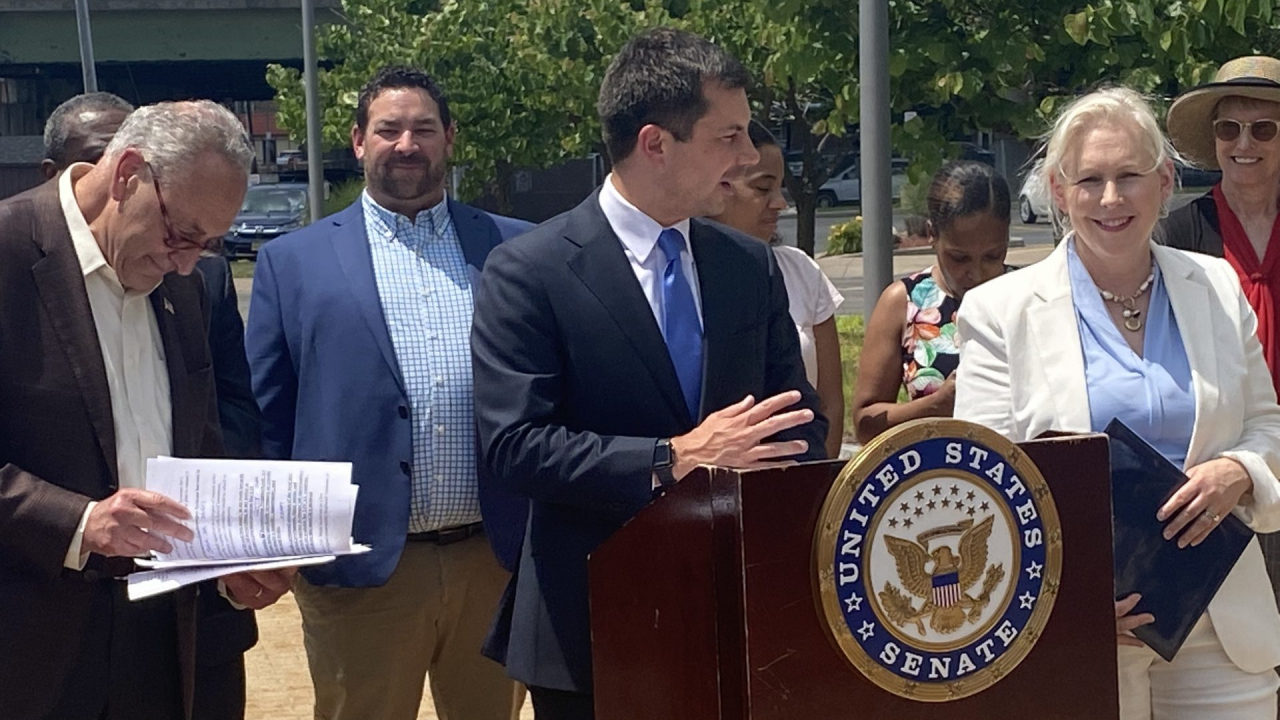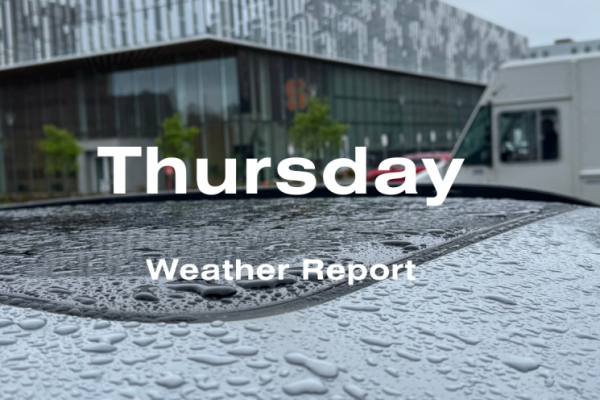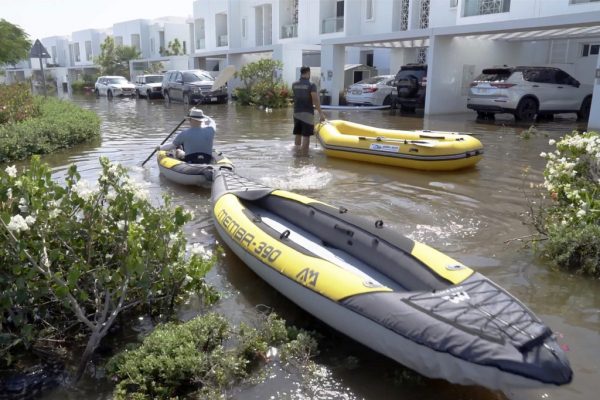
SYRACUSE, N.Y. (NCC News) — United States Transportation Secretary Pete Buttigieg visited Syracuse on Tuesday to take part in a roundtable discussion on the future of the I-81 project.
The roundtable consisted of Senate Majority Leader Chuck Schumer, Sen. Kirsten Gillibrand, Syracuse Mayor Ben Walsh, Onondaga County Executive Ryan McMahon, State Sens. Rachel May and John Mannion, Assemblyman Al Stirpe and community and labor leaders such as Urban Jobs Task Force President Deka Dancil.
Buttigieg said he admired the number of entities and personalities that came together for the meeting.
“It really says a lot about what might happen when a city like this is committed to moving forward,” Buttigieg said in a post-meeting press conference. “And as everybody here knows, all of the other issues we talked about — jobs, safety, prosperity, racial justice — cannot be separated from transportation. Every decision about transportation is necessarily a decision about justice.”
Justice is something the project’s proponents have long searched for, as the I-81 viaducts have wreaked economic havoc on the city since its construction in the 1950s and ’60s. Buttigieg acknowledged the viaduct’s history, as well as the 65th anniversary of the signing of the Interstate Highway Act in 1956, which fell on the day.
“It was an extraordinary achievement,” Buttigieg said of the act. “But we know that the planners behind it also made choices that often routed new highways directly through Black and brown neighborhoods, doing lasting damage to those communities. And one of those highways is right next to us.”
The building of the viaducts resulted in the razing of the 15th Ward of Syracuse, displacing a Black middle class community and sending many families into poverty for generations. The project represents an opportunity to right those wrongs, as it brings about the prospect of thousands of new jobs through construction during the project, and economic opportunities after it. Senate Majority Leader Schumer says through investment in the project, communities that were left behind due to the viaduct can start to catch up.
“With federal investment, highways that previously upended communities could be rebuilt to reconnect them to jobs and economic opportunities,” Schumer said. “I want to promise the residents in Central New York, I will use all my power as majority leader to get I-81 funding here in Syracuse.”
A concern for some, however, is the possibility of local residents not benefiting in the economic activity.
“We are very nervous,” Urban Jobs Task Force President Deka Dancil said in a previous interview with NCC News. “One, that people are going to be displaced, that the area is going to be gentrified, and that the people who have been most impacted by the highway historically and who will bear the brunt of the burden when it is rebuilt will not have the benefit.”
But Sen. Kirsten Gillibrand says that her legislation, the Build Local, Hire Local Act, would quash those fears if it were passed.
“It will definitely not happen because the way I’ve written legislation, the Build Local, Hire Local Act, it’s intended for the resources to get reinvested in the community that was disproportionately harmed. So my legislation is intended to fix these problems to make sure history does not repeat itself.”
Gillibrand implied that some of the funding for the project could come from a bill separate from the proposed bipartisan American Jobs Plan, which was recently negotiated by President Biden with a group of Democratic and Republican senators.
“Our goal is to have a second bill,” Gillibrand said. “The reconciliation bill, which will be far more broad based and have resources that the smaller bipartisan infrastructure bill does not have one.”
That proposed reconciliation bill has drawn controversy, however, as some Democrats have threatened to sink the Jobs Plan without assurance of the second bill, which would be forced to go through budget reconciliation so as to not require Republican support. President Biden nearly sank his own American Jobs Plan by alluding to the second bill last week, before drawing Republicans back on board.
Regardless of the funding measures and future haggling, Buttigieg made it clear that the Biden administration has Syracuse on its radar.
“You will always have a friend in the Biden-Harris administration,” Buttigieg said. “Many friends in the Biden-Harris administration rooting for this community to succeed and ready to celebrate the triumphs that you’re going to put up on transportation infrastructure, and in so many areas of your future.”




